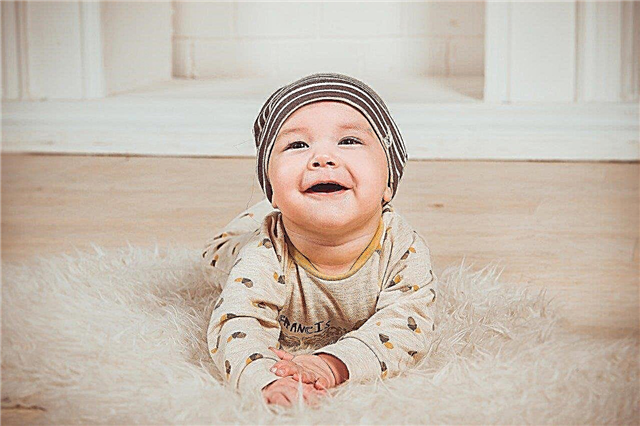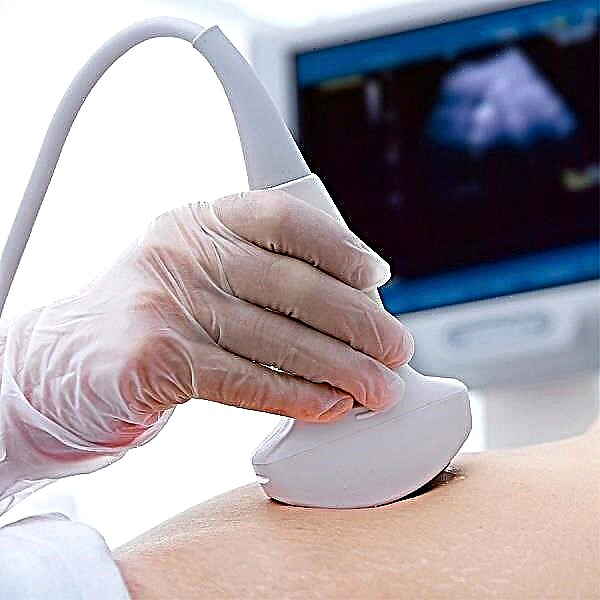
Parents of babies in the first three years of life, as professional rescuers, are always ready to raise the alarm, since it is in the first 36 months from the moment of birth that the crumbs are most susceptible to various infections. Especially "dangerous" age is the first year of life. As a rule, flu and ARVI infrequently attack babies under one year old, but after the toddler celebrates its first birthday, the situation changes. Both for the child himself and for his parents.

Many of us, moms and dads "with experience" have noticed that it is at the age of one that our children often begin to encounter viruses. There is a reasonable explanation for this: with yearlings, we often begin to appear in public places, walks with children become longer, some crumbs begin to attend their first children's teams - early development studios at the age of 1. Kids are actively drawn to communication, expanding their world, which for up to a year was limited by the walls of the apartment and short walks in a stroller in the yard.
The immunity of yearlings is still being formed, most often he does not know what the flu, herpes or chickenpox virus is and how to deal with it. Should children from 1 year old be given antiviral drugs? What means to choose?

Mechanism of action
Medicines, united by one common name "Antiviral drugs", are very different, both in form and mode of action.
A separate group is anti-influenza drugs such as "Arbidol". Their task is to target influenza A and B viruses, as well as possible strains.

They are followed by antiherpetic drugs such as Acyclovir. Their area of responsibility extends to herpes viruses, and there are quite a few of them.


Immunomodulators and immunostimulants give a "boost" to the child's immunity, activating it for the earliest adequate response to the virus that has entered the body.
Interferons are preparations containing proteins of human interferon, obtained from donor blood cells during laboratory exposure to one or another virus. These proteins are needed to block the virus and prevent it from multiplying. Preparations with such a composition help the body to quickly deal with the "invaders".
Inductors of the synthesis of endogenous interferons are drugs whose complex name hides a simple mechanism. Such drugs start the process of producing their own interferons in the body of a sick person, which, as we have already found out, are necessary for the final victory over viruses.
There are also chemical preparations that have a rather simple, straightforward and rude effect on the virus, as well as homeopathic remedies, the effectiveness of which, from the point of view of official medicine, has not yet been clinically proven.
Antiviral drugs are of plant, synthetic and semi-synthetic origin.
The main feature of this group of medicines is that they can be taken not only for the treatment of the disease, but also for prophylactic purposes.

Application features: pros and cons
The parents of a one-year-old child with the flu have only one desire - to ease the baby's condition as soon as possible. Therefore, in 90% of cases, moms and dads, out of good intentions, immediately run to the pharmacy, where the pharmacist recommends them a children's antiviral drug that is suitable for the baby's age and relying on positive reviews. Moreover, we strive for the medicine immediately, as soon as the baby's body temperature exceeded the psychological mark of 37, 5.
All these actions are unreasonable and wrong from the start. Firstly, with signs of a viral cold, the child does not need restless and nervous parents, but balanced adults who know what to do. The first step is to call a doctor at home. It is he who will tell you if there is a need for antiviral therapy and will prescribe a specific drug. A doctor, not a pharmacist in a pharmacy!

In general, the use of antiviral drugs is a rather controversial issue. Many doctors, including the recognized authority among millions of mothers, the famous pediatrician Yevgeny Komarovsky, believe that the child is quite capable of coping with the flu or ARVI on his own, without medication.
Komarovsky, in particular, declares that taking antiviral syrups and pills is needed not so much for a sick baby as for his parents to calm him down - it seems like they did what they could, now the miracle pill will work, and the baby will become easy and good.
You can see his handbook here:
Almost all antiviral drugs put pressure on the child's immune system in one way or another, and this is clearly not beneficial, especially at the age of one, during the formation of immunity. Nature's own defenses are unbalanced. As a result, the baby begins to get sick more often, and the ailments themselves are more severe, the risk of complications increases.
Today's truth is that antivirus products are more than available, sold over the counter, widely advertised on TV, and therefore caring parents feed their children tons of pills for any reason. As a result, we are raising an entire generation of children with weak immunity.
If you do not want to raise a weak, constantly ill child, who by the age of 10 will acquire a solid bouquet of diseases, including chronic ones, you do not need to fanatically buy antiviral drugs. Better help the crumbs' immunity to form independently and get stronger.

Indications
My goal is not to convince you that antivirals are harm and evil. Not always. Only with a systematic and uncontrolled reception. Of course, there are situations in which such drugs are necessary for the baby.
The doctor will recommend an antivirus in several cases:
- If your one-year-old baby does not have fever for more than three days. Heat in the understanding of doctors and parents are two different things. Taking antivirus drugs does not start at 37.5, but only if the thermometer stubbornly shows a temperature above 38.5. Anything below is the normal reaction of the child's immunity to the virus. Above is also a normal reaction, but a still not strong baby at the age of 1 year with a strong long heat may experience intoxication of the body, which leads to dehydration, convulsions. To prevent this, antivirus tools are prescribed. Sometimes in tandem with antipyretics.
- If the child has a viral infection is difficult. When various complications develop rapidly with flu or ARVI - on the throat, lungs, bronchi, etc. Such diseases will be considered a secondary infection, and the doctor will treat them symptomatically. If viral complications - with antiviral drugs, if bacterial - with antibiotics. In some cases, the doctor will prescribe both. Laboratory tests and the experience of a competent pediatrician help to distinguish viral from microbial ailments. Mothers and fathers should not make diagnoses on their own. The error can be costly.
Antiviral drugs are likely to be prescribed to a one-year-old child with severe rotavirus, intestinal, herpetic infections, adenovirus and enterovirus, complex chickenpox, measles, shingles, viral eye disease and many other ailments.

Treatment and prevention
When choosing an antiviral agent for a child aged 1 year and older, you need to remember that different drugs in this group have important features.
Chemical preparations (for example, "Rimantadin") quickly destroy the virus, but also quite noticeably "hit" the entire child's body. For yearlings, such drugs are not always contraindicated, but the doctor should make a decision about their appointment, assessing the possible benefits and potential harm.

Immunomodulators and immunostimulants, such as "Tsitovir-3", "Timogen", affect the child's immunity, their frequent use can end quite badly. Such drugs are contraindicated for children who have blood relatives with oncology or diabetes mellitus, as well as other diseases of the immune system.
Interferons containing a protein "non-native" to a child have a lot of side effects. These drugs include "Interferon" and a number of others.

Doctors recognize the use of antiviral medicines for the prevention of viral infections as a fairly effective measure. It is not always necessary to give a child antiviral drugs to prevent the disease, but only during epidemic seasons, when there is someone infected with the child. Preventive doses are half the therapeutic ones! Give a drug with antiviral effect for the prevention of influenza and ARVI to a child from 1 year old, preferably no more than two courses (2-3 weeks) per year. Moreover, in weekly schemes - they give medicines for two days, and then take a break for five days.
"Children's" medicines
Children's antiviral drugs differ from adults in the dosage of the active substance and the dosage form of the drug convenient for taking. For babies from 1 year old, medicines in the form of oral drops, nasal drops, syrups, suspension, solution, solution for inhalation with a nebulizer, ointments, gels, rectal suppositories are ideal. Less commonly, soluble sublingual tablets are suitable for yearlings. And at this age, solid tablet forms, capsules are not needed at all. Antiviral drugs in injections also exist, but are mainly used only in hospitals and not at home.

List of the most popular antiviral drugs for children 1 year and older:
General recommendations
- The effectiveness of antiviral agents increases significantly with prophylactic use or administration of the drug in the first hours after the onset of symptoms of a viral infection.
- A one-year-old child with antiviral therapy must be provided with a plentiful drinking regime. Intoxication and dehydration associated with a viral infection at this age can cause death.
- For a one-year-old child, for a 1.5-year-old baby during a period of illness with influenza or ARVI, bed rest is very important.
- In babies in the first two years of life, many antiviral drugs, including homeopathic ones, can cause severe allergic reactions. Therefore, you cannot choose the drug yourself and give it without consulting your doctor.
- Do not repeat courses of treatment with antiviral drugs more than twice a year - this can adversely affect the state of the child's immunity.




